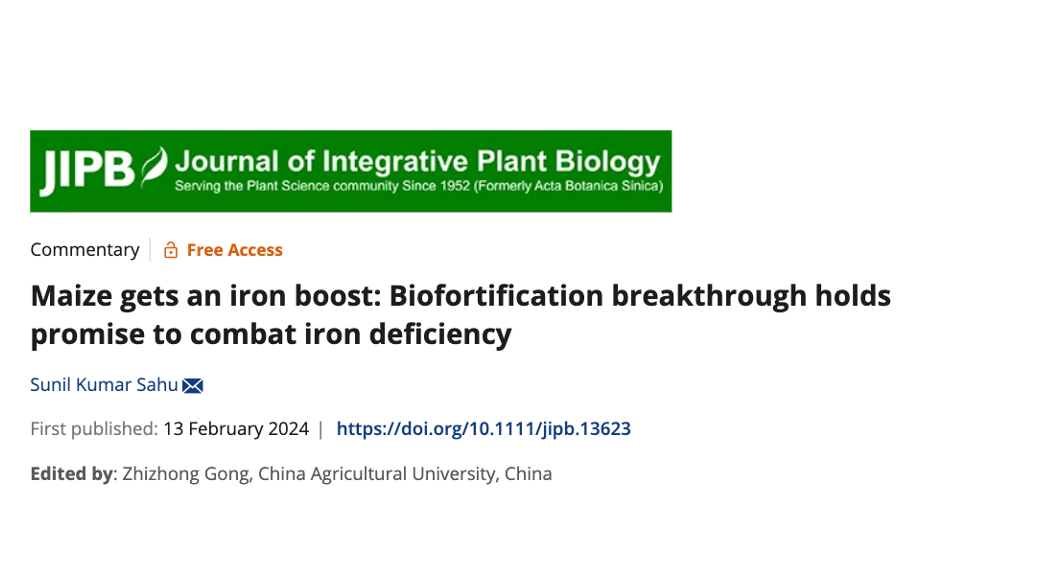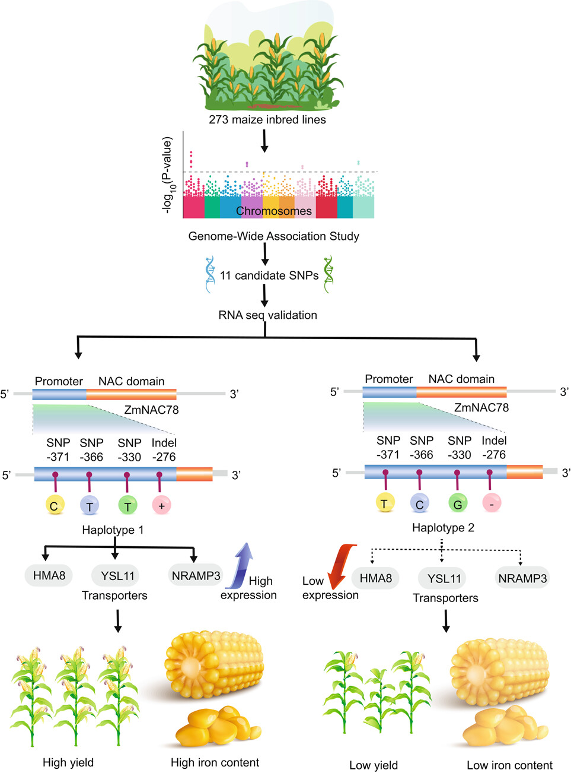Iron deficiency, poses a significant global health challenge, affecting a vast portion of the world's population, especially women and children. Scientists are working towards addressing this issue, and a recent breakthrough in maize biofortification offers new insights.
Iron deficiency in adults can lead to a range of symptoms, from mild ones such as fatigue and weakness to more severe ones like chest pain and cognitive issues. Children face risks of growth and developmental delays and require adequate iron for proper growth. Iron deficiency is also the leading cause of anemia globally with more than 1.2 billion people affected.
While maize is a dietary staple for millions of people living in sub-Saharan Africa, the content of iron in edible kernels is naturally low. Identifying methods to increase the iron content in maize kernels has thus become a significant research focus in crop science studies.
Recently, Dr. Sunil Kumar Sahu, a Research Scientist at BGI-Research, published a commentary article in the Journal of Integrative Plant Biology. This article provides a deeper understanding of the genetics underlying iron loading in maize kernels. This research is part of the 10KP (Ten Thousand Plant Genome Sequencing) project.
 The article, “Maize gets an iron boost: Biofortification breakthrough holds promise to combat iron deficiency”, was published in the Journal of Integrative Plant Biology.
The article, “Maize gets an iron boost: Biofortification breakthrough holds promise to combat iron deficiency”, was published in the Journal of Integrative Plant Biology.
By exploring the genetic blueprint of 273 maize lines, the research team uncovered the ZmNAC78 gene, which plays a crucial role in enhancing iron levels in maize kernels as a master regulator that enhances iron absorption in maize kernels. By utilizing this finding, a new breed of maize can be cultivated with the iron content in the kernels increased to 70.5 mg/kg, which is more than twice the level of common maize varieties.
 A master regulator of iron biofortification in maize kernels
A master regulator of iron biofortification in maize kernels
Through investigating genetic diversity and utilizing genome-wide association studies, researchers have identified specific genetic markers and promoter variants linked to elevated iron levels. The incorporation of these high-iron characteristics into maize cultivars presents an economical and sustainable strategy for enhancing the iron content in staple foods like maize for large populations. Such a method holds the potential to advance public health and reinforce nutritional food security in areas that rely heavily on maize as a primary food source.
Dr. Sunil Kumar Sahu stated that: “The enhanced maize landraces with bioavailable iron could offer a sustainable and cost-effective solution to improve nutrition and combat iron deficiency in regions heavily reliant on maize for their diet. This approach, which leverages natural genetic diversity without compromising yield, marks a significant advancement in biofortification efforts, potentially offering a new avenue to address nutritional deficiencies in staple crops worldwide.”
Read more about the article: https://onlinelibrary.wiley.com/doi/full/10.1111/jipb.13623
Source:
World Health Organization(WHO)- Anaemia:
https://www.who.int/health-topics/anaemia#tab=tab_1
Mayo Clinic - Iron Deficiency Anemia:
https://www.mayoclinic.org/diseases-conditions/iron-deficiency-anemia/symptoms-causes/syc-20355034
Cleveland Clinic - Iron-Deficiency Anemia:
https://my.clevelandclinic.org/health/diseases/22824-iron-deficiency-anemia
IMHE - The Lancet: New study reveals global anemia cases remain persistently high among women and children. Anemia rates decline for men:
Biofortification of iron content by regulating a NAC transcription factor in maize:
https://www.science.org/doi/10.1126/science.adf3256



